Choosing which type of flooring to install in a new or renovated industrial or commercial space is an important decision on many different levels.
The practical considerations are significant (such as durability, maintenance, and cleaning) and health and safety requirements also need to be factored into your choice. Cost is another issue – as is performance. It would help to choose a flooring type that is fit for purpose and proven over the long-term. Aesthetics may also be necessary.
With all these factors in mind, there is only one standout choice for industrial and commercial floors: epoxy flooring.
Epoxy flooring is one of the safest, most hard-wearing, durable, cost-effective, versatile, and attractive options. It fits anywhere – from the harshest industrial environment to a stylish office interior.
Contents
What Is Epoxy Flooring?
It is essentially a rigid synthetic resin coating applied over a substrate (usually concrete) that hardens into a smooth, seamless, durable, and long-lasting surface. There are several types of epoxy floors, including self-dispersing (generally used in high-traffic commercial and industrial applications) and self-leveling (best suited to lower-impact environments such as residential floors where the look emulates a concrete floor).
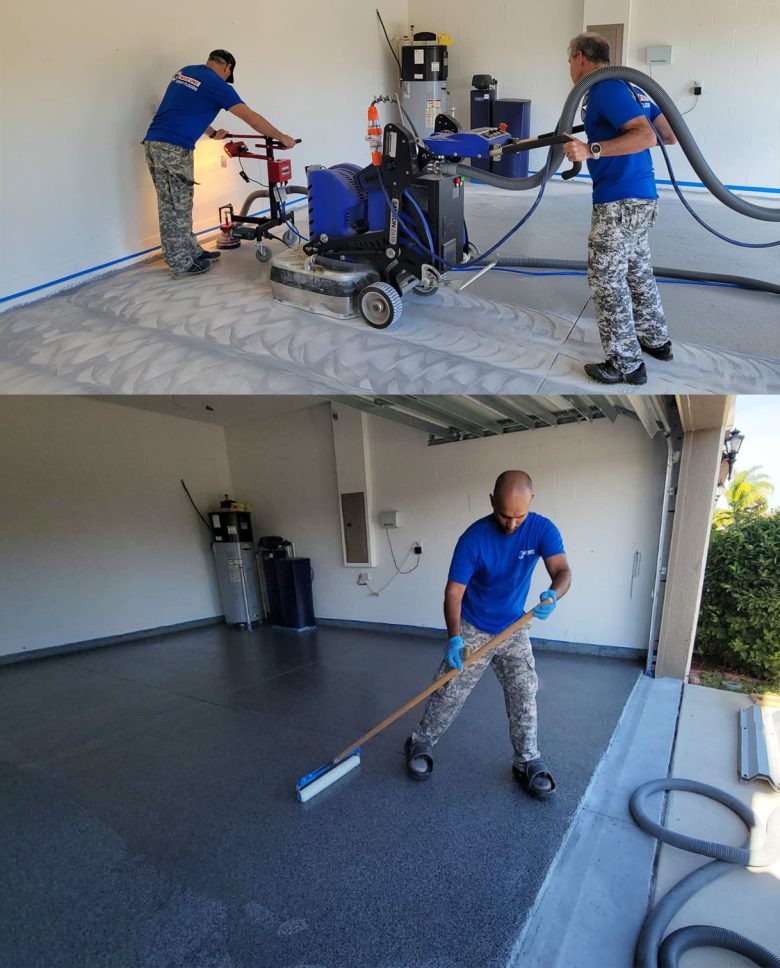
Source: pinterest.com
Benefits Of Epoxy Flooring
It has several advantages compared to other coverings such as vinyl, tiles, or carpet.
1. Aesthetics
This can be applied as a seamless, easy-to-clean surface with a wide range of customizable color options and a variety of gloss levels (glossy, satin, matte). Further design options include the addition of colored microchips and metallic pigment additives.
2. Maintenance
Since epoxy is a seamless and waterproof option, the concrete substrate is protected from chemicals, dirt, liquids, and other contaminants. This makes it easy to clean and requires only a scrubber or standard mopping with a general-purpose cleaner – no waxing or buffing is necessary. These require no maintenance other than a standard cleaning, making them a great long-term value option.
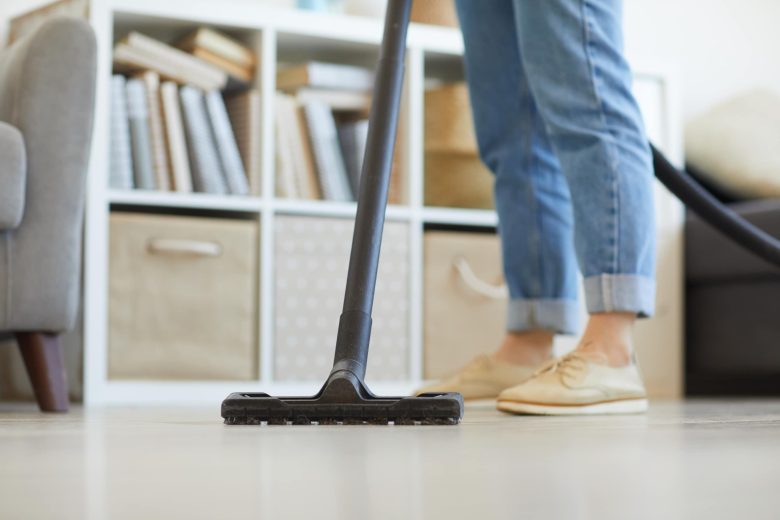
Source: resin-expert.com
3. Safety
One of the lesser-considered advantages is its ability to include a non-slip profile by broadcasting sand onto the wet body coat during application. This is an essential facet for commercial or industrial spaces as the safety of occupants should always be a primary concern.
4. Durability
Workloads vary from foot traffic to truck and forklift traffic. An industrial option can withstand daily abuse from various equipment and manufacturing processes. As an abrasion and chemical-resistant material, the options can meet the durability needs of most industrial manufacturers.
5. Environment Suitability
As one of the most versatile flooring options, it is excellent for various environments such as industrial, commercial, medical, food and beverage, aviation, recreational, healthcare, transportation, manufacturing, educational, grocery, retail, and many more.
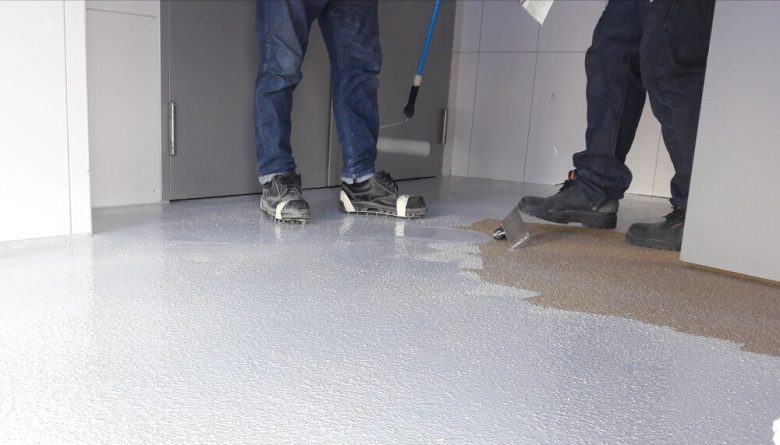
Source: blueandgreentomorrow.com
6. Green Credentials
As a world-leading resin manufacturer, many solutions are formulated to be solvent-free, contain low quantities of VOCs (Volatile Organic Compounds), and do not present environmental hazards.
Is An Epoxy Floor The Same As An Epoxy Coating?
The terms are used interchangeably, but there is a slight difference between them, and it relates to the thickness of the resin layer. If the layer is less than two millimeters thick, it’s called an epoxy coating, and anything more profound than two millimeters is referred to as floor. The decision to install a coating vs. floor depends on the particular application and how it will be used. Find here the best epoxy floor finishing.
Does Epoxy Flooring Meet Regulatory Health And Safety Standards?
Yes. It is possible to add textured materials such as quartz sand to the liquid coating before application, enhancing the floor’s anti-slip, skid-resistant properties in wet and dry conditions. If your operation needs to comply with government and HACCP requirements, always check with the company that their products have been designed and rated to meet all applicable safety and quality standards.
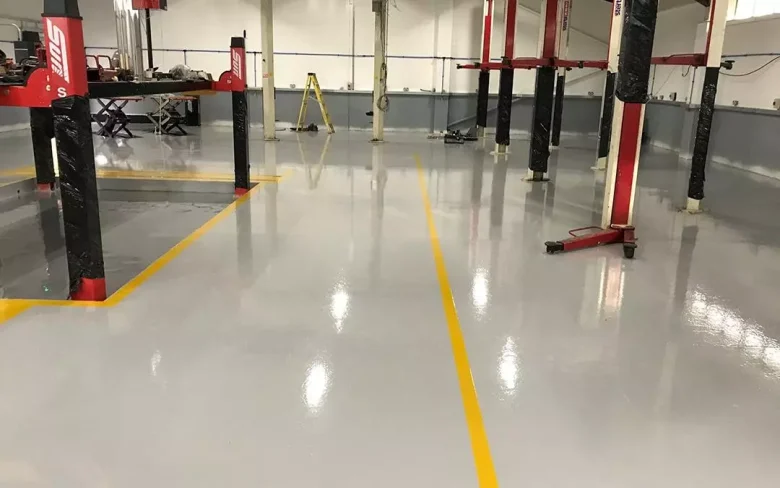
Source: pscflooring.co.uk
Does It Come In Different Colors?
Yes. There are hundreds of stylish and unique colors and finishes to choose from, plus it’s possible to restrict individual areas or embed designs (such as a logo) into the floor. This is a crucial consideration from a health and safety perspective as it enables walkways, exclusion zones, line markings, pedestrian/vehicle access areas, etc., to be highlighted, creating a safe and clean working environment for employees and visitors.
How Durable Is It?
It has a reputation as being one of the most challenging surfaces available. It can withstand continuous impact from heavy foot traffic and moving machinery. It holds up exceptionally well against temperature extremes and damp, wet conditions. It is also stain, acid, and water resistant, so it’s ideal for industrial environments where oil spills can occur, and corrosive chemicals are in use.
It is a far superior option to bare concrete and many other traditional coatings applied over concrete. It’s an extremely tough, hard-wearing, and high-performance coating which can stand up to the roughest treatment over time.
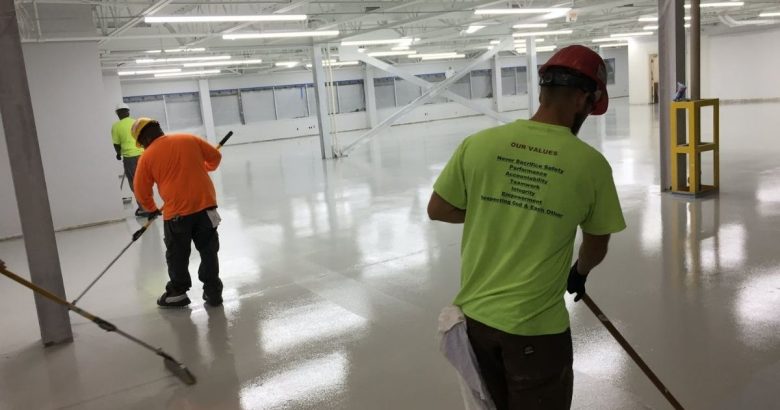
Source: civilsnapshot.com
Are They Easy To Clean?
Yes. The resin surface is impervious to liquids and can withstand robust cleaning regimes. High-pressure hosing, hot water, and even harsh chemicals can all be used confidently on an epoxy floor.
Are There Any Downsides To Epoxy Floors?
Epoxy ones are constructed to be impact resistant, but in extreme situations, the surface may chip or crack if bulky items are dropped onto it. However, if this does happen, it is possible to have it repaired and restored to its original condition.
Another consideration is that removing or altering an epoxy floor can be tricky and time-consuming. Carefully planning is always recommended so that no changes are necessary once the floor has been laid. A reputable installer will always take the time to discuss current plans for your space to ensure that the right long-term decisions are made regarding line markings, etc.
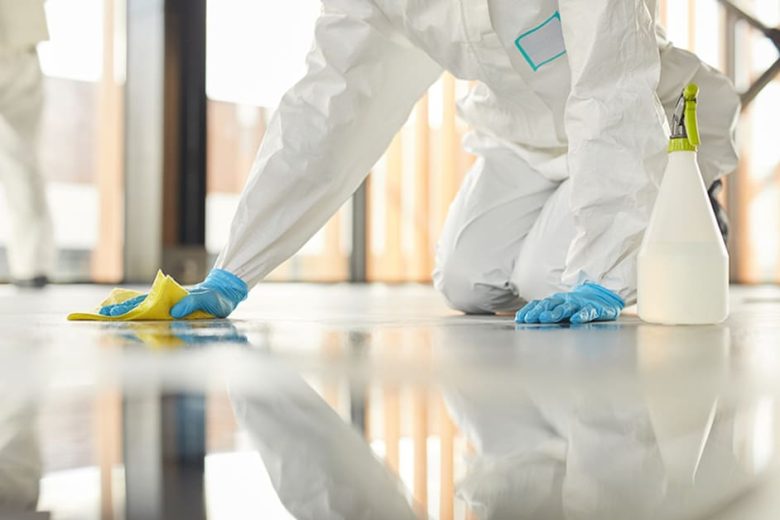
Source: acrylgiessen.com
Bottom Line
The benefits of an epoxy floor for a commercial, industrial, or even residential space are well-documented.
They include:
- Superior durability and longevity
- Reliable performance against the heavy and continuous foot, vehicular, and machinery traffic
- Ease of cleaning and maintenance
- Stain resistance
- Impermeable to liquids
- Color-coding to demarcate areas of flooring
- Skid and slip-resistant when combined with textured additives
- Stylish, attractive, and versatile
Epoxy flooring is a durable, hygienic, safe, low maintenance, and attractive flooring choice with endless design possibilities for all industries.
